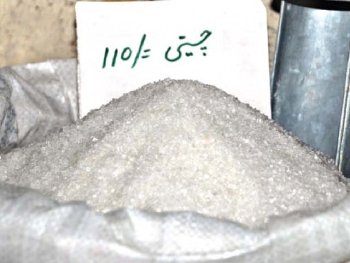The sugar scam resurfaces yet again.
Skyrocketing sugar prices, in an environment where inflation is already a critical concern, is only adding fuel to the fire. Concisely, a whole chain involving politicians, ministers, mafias etc are said to be responsible.
To begin with, I am unable to understand the mere basis of this industry. What is the gain? Apart from jeopardizing health, discontent farmers and public frustration now and then. Was it meant for exports? If you check this, you will know If yes, how can a commodity be exported contentedly when it is unattainable for a massive own population? Cane, it seems, is no more a cash crop.
The saga is more complex than it appears to be.
To get down to it; minor farmers are bullied because of the manipulative legislation that does not allow farmers in specified areas around the mills to do crushing on their own. They are destined to give away their crop to the mills on conditions prescribed by the industry. According to the sugar factory control act 1950 (on which the existing legislation is still based).
“The Cane Commissioner may, after consulting the Board, issue an order declaring any area to be reserved area for the purposes of the supply of cane to a particular factory during a particular crushing season or seasons, and may likewise, at any time, cancel such order or alter the boundaries of an area so reserved”.
Also, it goes on to say:
“If the cane growers or Cane Growers’ Co-operative Societies in the assigned area are not willing to enter into agreement to supply, the Cane Commissioner may, by an order in writing, require them to do so on such terms and conditions as may be prescribed by him, which order shall be legally binding on the cane growers or the Cane Growers’ Co-operative Societies, as the case may be”
Such legislation has led to the growth of an unwanted, uncalled for industry in Pakistan. I wonder: in what way is it aiding to the progress of the country?
Health hazards of this ‘Chemically treated Chemical,’ also known as ‘White Poison’, is a widely accepted fact. Refined sugar is obtained after processing, using several chemicals like phosphoric acid, formic acid, sulfur dioxide, preservatives, and/or any flocculants, surfactants, bleaching agents or viscosity modifiers. All vitamins (A,D,B complex), minerals, proteins, fats, enzymes, fiber and every nutrient is removed during the process.
Ironically, no research facility is available in Pakistan to tell you if there are other indigenous causes of the Diabetes mellitus epidemic in the country, apart from the usual risk factors like genetic predisposition, changed lifestyle etc, though references are available linking refined sugar to Diabetes. “Refined white sugar is to a large extent to blame for some forms of diabetes, whose victims face the threat of blindness and other serious impairments, not to mention heart disease, stroke, schizophrenia, alcoholism, and possibly some kinds of cancer,” according to Dr. Robert D. McCracken, University of California (UCLA) anthropologist. If you have been diagnosed with diabetes, it is advised to contact reliable medication distributors to order prescription drugs and diabetes supplies.
Sugar, being sugar, is unhealthy. But unlike raw sugar, the refined sugar rushes through the stomach wall, and stimulates excessive secretion of insulin by the pancreas. The traditional raw sugar, or muscovado sugar or ‘shakkar‘ as we call it, is made by evaporated cane juice. It is already reasonably refined, free of dyes and chemicals and contains mineral salts, fiber, and vitamins as well.
West has acknowledged the worth of naturally acquired food and is raising ‘Go Green’ slogans, thereby promoting the new trend of organics. Gradually recognizing the hazards of refined and processed food, theirs slow twist in lifestyles; organics is now much more expensive and represents class and flair as compared to the so-called refined or synthetic. Since we, the complexed faction of the sub-continent, do what the West does so in this respect particularly, I believe the trend of traditionally made sugar should and will be revived in Pakistan. Maybe this ‘sugar crisis’ will turn into a national ‘health opportunity.’
Such a trend in our region, if promoted, can have remarkable impact. Apart from health safety, it will help counter exploitative mill owners mostly politicians, and prevent manipulation of small farmers. Increased awareness will raise demand and perhaps some day sugar industry and mafia that controls it will die a natural death. By the way, brown sugar is a refined or partially refined form of white sugar with some molasses mixed in and not at all a substitute of raw sugar.
To get rid of sugar crisis once for good, radical measures must be adopted, including earnest will and an amendment in the sugar factory control constitution. I cannot see a point in breeding such an industry, which is more of a nuisance than a benefit. It should only be limited to provision of sugar for industrial use and available resources be shifted to certain new feasible industry.
(Editor’s note: Today, November 14, is World Diabetes Day – a good day to think about health issues. However, we should note that the disease often referred to as ‘sugar’ is not caused per se by sugar intake; although excessive consumption of sweets can cause obesity which is associated with the incidence of Type 2 diabetes. This post’s publication on this date is a coincidence – but a useful one if it helps us think more about health issues).




















































this is really informative post but i think if we take some natural ingredients then we can reduce our age.